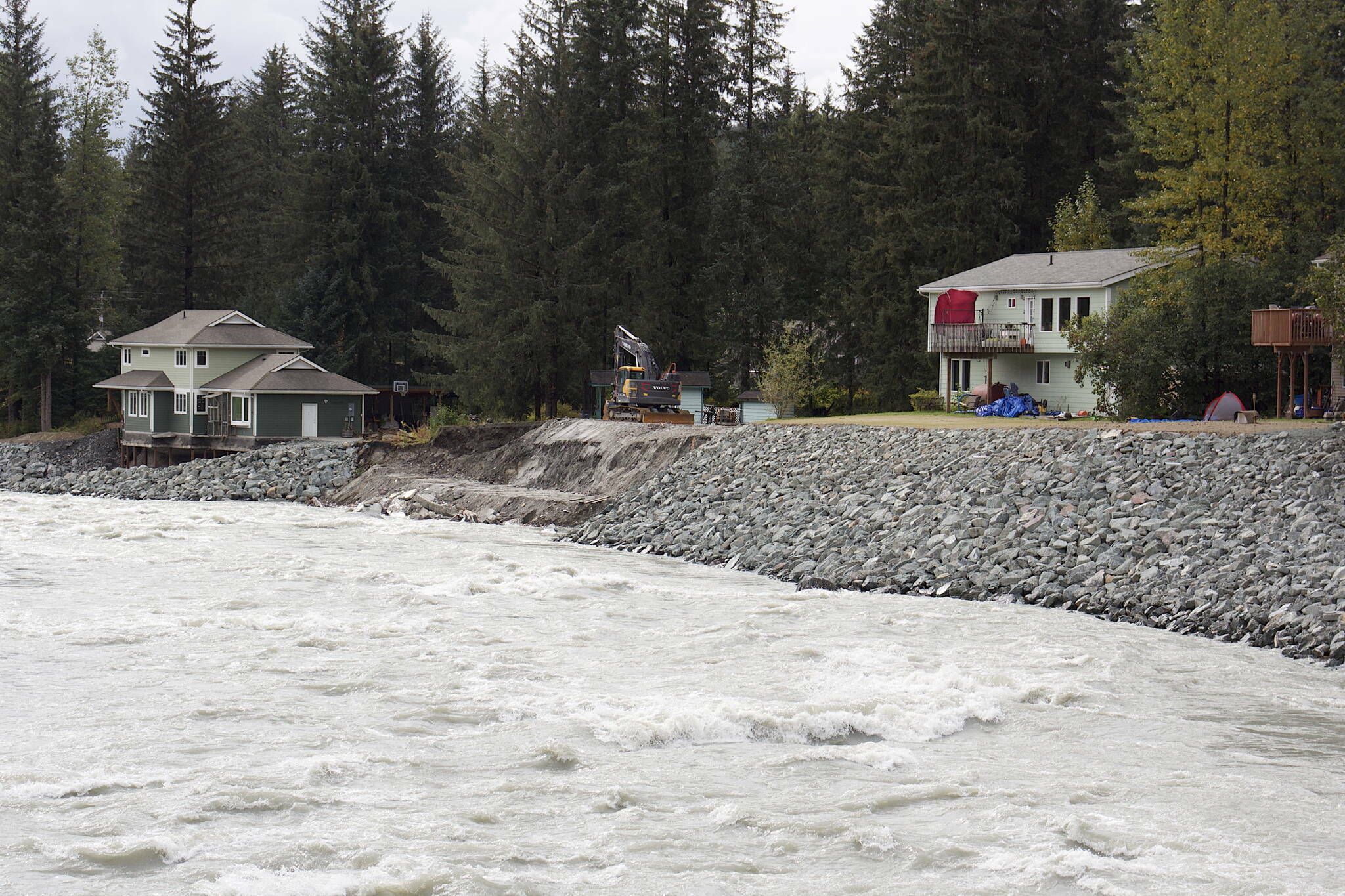A meeting to provide updated information and answer questions about Mendenhall River flood mitigation efforts after the record release of water from Suicide Basin this summer is scheduled at 6 p.m. Monday during a Juneau Assembly Committee of the Whole work session in the Assembly Chambers.
“At the meeting, staff will give a brief presentation on the efforts CBJ has made thus far and the potential funding opportunities available to help with mitigation (primarily bank stabilization),” a press release by the city states. “The public will then have an opportunity to ask specific questions and/or bring forward mitigation suggestions for Assembly consideration.”
[Federal SBA loans available for people, businesses affected by Suicide Basin flooding]
Questions and suggestions from the public will be used as the basis for a follow-up meeting with experts including representatives from the Army Corps of Engineers, USDA Natural Resources Conservation Service, and Department of Military and Veterans Affairs, according to the release.
The Committee of the Whole is also scheduled to again consider landslide and avalanche hazard regulations that have been controversial among downtown homeowners and businesses, as well as tourism management strategies. However, the city’s press release notes those items “and non-agenda items are not open for public testimony at this time.”
Dozens of homes were destroyed or damaged when the Suicide Basin ice dam collapsed on Aug. 5, releasing more than 13 billion gallons of water. Many homeowners have said they are stuck with enormous bills for repairs — if making them is possible — with efforts to obtain insurance and disaster assistance funds frequently inadequate or unsuccessful.
A state disaster declaration a few days after the flood provided up to $21,000 of individual assistance for housing and property damage, with the deadline to apply ending Oct. 9, but the Federal Emergency Management Agency declined a request from the city and state to provide federal disaster aid that would have allowed significantly more funding. The U.S. Small Business Administration subsequently announced in early October it was allowing residents and businesses affected by the flood to apply for low-interest federal disaster loans.
There are also numerous issues of concern for both residents and public officials related to the potential of future such flooding from the basin — and possibly others in the Mendenhall Glacier area — and what measures can be taken to protect property and public infrastructure.
Presentation material by city officials at Monday’s meeting will focus on “How We Got Here,” “Where We Are Now” and “Investigating Big Picture Funding Opportunities,” according to documents released in advance of the meeting.
The Juneau Assembly, among other actions, approved during its Oct. 23 meeting a five-fold increase in annual monitoring funds to the U.S. Geological Survey — to $35,000, up from $7,000 — to allow for additional cameras, sensors and other data collection.
Other federal funding opportunities residents can apply for and that the city is involved with — such as a FEMA hazard mitigation grant via the state — will be presented during the meeting.
Public testimony during the meeting be limited to three minutes per person, with a signup sheet provided for people attending the meeting. People wanting to testify remotely via Zoom must notify the city clerk’s office by 4 p.m. Monday at (907) 586-5278. Comments can also be submitted in writing to BoroughAssembly@juneau.gov.
• Contact Mark Sabbatini at mark.sabbatini@juneauempire.com or (907) 957-2306.

